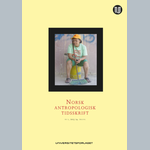Women's battles outside the Western feminist tradition
“La luchadora social”, the female activist in Latin American culture, gained new momentum in Venezuela in1999, when the Bolivarian Constitution was passed. The new constitution included several paragraphs on gender and gender equality which created a snowball effect spurring a wide range of political processes putting women’s rights and gender equality on the agenda. In the 2000’s, actors like InaMujer (the Venezuelan National Institute for Women) and the Ministry of Gender and Gender Equality came into being. Hugo Chavez, a self-proclaimed feminist, vocalized the importance of women’s position in society. These political processes and structural changes have altered poor Venezuelan women’s thinking and identity. They no longer perceive themselves as merely, or primarily, mothers and wives, nor are they treated as such by society as a whole. Venezuelan women are now active participants in public debate and important participants in political and social activism.
-“La luchadora social” has become an integral part of the political discourse. Venezuelan women’s collective leap has challenged traditional thinking about women’s role in society. Although women have always been an important part of community activism amongst the poor, they now became a politizised group, creating new female identities and new arenas for political participation, says Iselin Åsedotter Strønen, PhD candidate at CMI. She has recently published an article in Norsk sosialantropologisk tidsskrift on women’s changing roles in Venezuela, based on extensive research amongst grass root groups in Venezuela’s poor neighbourhoods, the barrios.
A feminine awakening
In addition to a political “awakening”, the last decade has been characterized by a significant growth in Venezuelan civil society organizations, especially amongst the poor. Some of them have a political agenda, others focus on social activism and perform welfare functions, often based at local community level. It is primarily in organizations like these Venezuelan women have taken the lead. The experiences from social activism have raised their self esteem and expanded their networks.
Although Venezuelan women have been working and had responsibilities outside their homes for a long time,the political and social consciousness among women from the poor majority has deepened, and had an impact on the relations between men and women.
- In accordance with traditional Latin American gender roles, many men are wary of “their” women’s engagements outside the home. Many women told me that their husbands resisted it at first when they started to go out and participate in the street. But as women’s role in society suddenly became a theme of public debate, it also mitigated many conflicts in the public sphere. Suddenly both men and women became part of a larger political movement, struggling for a common good. It also had a great impact that Chavez discussed these issues in public. He had a lot of influence on peoples thinking about society, and when he said that society needed that women took an active part in social struggle, people listened, says Strønen.
-I think we have yet to see the long-term changes. A new generation of Venezuelan women is now growing up who are not only better educated, but they also have a lot more consciousness both about their rights and their value. I think that they will also in the long term push men even more into accepting that traditional gender roles are changing. Over the last years, there has been a clear tendency that men are more involved in household work and taking care of the children, as a result of women’s increased engagement outside the home.
Unchallenged machismo
Despite the focus on women’s rights and women’s participation, feminism is by many associated with Western culture. There is a widespread perception in Latin America of feminism as something promoting female promiscuity and anti-family values. Machismo, the dominant Latin American gender ideology, has been challenged on some fronts such as women’s rights to participation and men’s domestic responsibilities, but its deeper social and political implications have largely been left unchallenged.
-This is an interesting paradox. There is so much talk about gender equality, yet so little talk about feminism. The public and political discourse on gender equality does to a very little extent address questions of abortion, or on women’s sexual rights and liberation. The issues that have been central to the feminist movement in Europe and the US are still too controversial to be openly discussed in Venezuela, says Strønen.
There have been discussions about alleviating abortion legislation, but so far nothing has happened. The new class of poor Venezuelan women’s activists has focused on basic needs like housing and education. In Venezuela, the fight for women’s rights has been inextricably linked to the fight against poverty.
-Women from the middle class have always had different opportunities and hence a different agenda. The poor women engaging in social activism in their local communities have had to choose the most pressing issues. For them, it has been a matter of covering basic needs, says Strønen.
Although many of the “luchadores sociales” in the poor Venezuelan majority have been inspired by Hugo Chavez, she does not think that the focus on women’s rights will change after his death.
-Women’s status in Venezuelan society has changed, and the changes are too extensive to be reversed. Chavez appointed successor Nicholas Maduro who will most likely win the upcoming presidential elections is also very clear on these issues. He is also married to the attorney general and women’s rights champion Cilia Flores.Women’s rights will remain an important part of the political agenda, she says.
Publications

En Feministisk Revolusjon? Kvinner, kvinnekamp og aktivisme i Chavez' Venezuela
